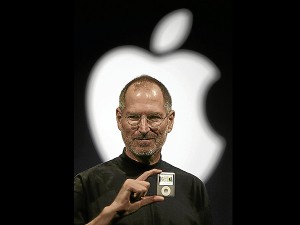Steve Jobs managed by meandering
In a landmark study done in the ’80s, San Miguel Corp. asked customers how they rated companies. The responses were startling.
Customers considered financial stability at the top of their metrics in assessing corporate reputation. Next came quality of products and services. Third came customer orientation and communication.
The first response came as a surprise. SMC did not think it would rate so highly in customer ranking. But on second thought, it made a lot of sense: How else can customers assess corporate performance except by financial measures?
The second metric was more predictable. Quality of products and services is what customers perceive and buy. What came as a minor surprise was how customers factored corporate reputation in their decision to purchase. They said, all things being equal (i.e., price, availability, value for money), they would go for the products offered by the more socially responsible company.
Surprising
The most surprising result was the third: customer orientation and communication. How a company responds to its customers was not expected to rank this high. Apparently, it mattered a lot to customers.
So now we see customer information desks in all but the most archaic companies. There is also an annual gathering of eagles when the top 1,000 companies (perhaps even more) pay allegiance to corporate social responsibility as a measure of a company’s success, even if it costs money.
But the more important metric is how a company’s leadership communicates with its employees, for this happens without the glare of publicity. How CEOs do this a more meaningful measure of their commitment to customer orientation and communication.
In a survey done by the Public Relations Society of America (PRSA) after the SMC study, Fortune 500 companies were asked how they communicated to their employees the company’s vision, mission, goals, and values. The results:
Group meetings, 75 percent internal memos, 62 percent meetings with supervisors, 56 percent; company newsletters, 51 percent. The surprise result was that word of mouth rated as high as newsletters with 51 percent.
Meandering
Now, CEOs talk to their employees incessantly. Apple’s Steve Jobs did it by walking around: beside the water cooler, along corridors, in meetings in conference rooms without walls. He knew everybody by face, if not by name.
One story says that in his daily meanderings, he met an employee at the corridor whom he did not readily recognize, Jobs asked “What do you do here?”
The employee said, “I’m with planning, sir.”
Jobs persisted: “What do you do here?”
Employee: “I do strategic planning, sir.”
Jobs was relentless: “What exactly do you do here?”
Employee (now getting perplexed): “I do studies on future products, sir.”
Jobs, finally: “Oh, overhead expense!”
By talking to the troops this way, CEOs communicate what values are important to the company as the source of its competitive advantage.
Anticipating
In another survey of 10 leading companies, the PRSA noted:
“Good CEOs have moved themselves into the center of their corporation’s communications decision-making, and they carefully monitor the results. They expect their senior managers to have the same sensitivity to the public relations aspects of important business decisions.”
Said Lee R. Raymond, the CEO of Exxon: “Public relations needs to anticipate social, political and economic issues … instead of being only reactive.”
Added Wayne Calloway, CEO of Pepsi Co.: “If I can get our reputation right, lots of good things happen…. If I get it wrong, we’re in big trouble.”
Multitasking
The PRSA study warned: “Public relations professionals, corporate or agency, who are not fully attuned to the new level of expertise being demanded of them, are headed for trouble.
“These expectations are tied to an intimate knowledge and understanding of the business plan, the ability to work closely with other corporate disciplines, an awareness of the dynamics of global business, and keeping pace with technology.”
Said Richard A. Clarke, CEO of Pacific Gas and Electric: “The only way CEOs can get what they need from their public relations advisers is to have them at the table when the policies, strategies and programs are hammered out.”
The PRSA study concluded: “The expectations for those holding top positions are higher and more diverse than ever.”
Translation: If you are a PR adviser, corporate or agency, and you are not invited to sit in strategic planning sessions or top management meetings, better go back to graduate school to learn corporate disciplines you need to get invited. You may be close to being tagged overhead expense.
(The author is the only Filipino to have won seven Anvil awards from the PRSA. He heads his own management consulting firm, e-mail mibc2006 @gmail.com.)

